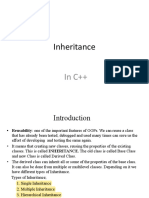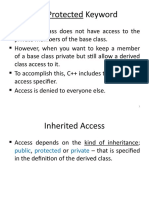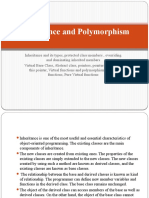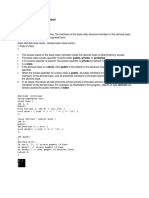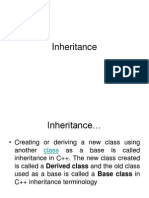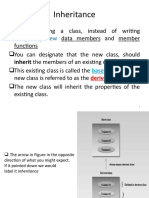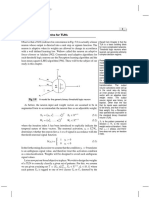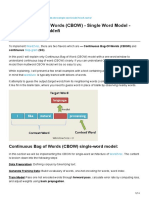0% found this document useful (0 votes)
6 views13 pagesInheritance Notes
C++ inheritance allows one class (derived class) to inherit properties and behaviors from another class (base class), enabling code reuse and extension. There are five types of inheritance in C++: single, multiple, hierarchical, multilevel, and hybrid. The document provides syntax examples and explanations for each type of inheritance, including access specifiers (private, public, protected) and their implications on member accessibility.
Uploaded by
magarratna471Copyright
© © All Rights Reserved
We take content rights seriously. If you suspect this is your content, claim it here.
Available Formats
Download as DOCX, PDF, TXT or read online on Scribd
0% found this document useful (0 votes)
6 views13 pagesInheritance Notes
C++ inheritance allows one class (derived class) to inherit properties and behaviors from another class (base class), enabling code reuse and extension. There are five types of inheritance in C++: single, multiple, hierarchical, multilevel, and hybrid. The document provides syntax examples and explanations for each type of inheritance, including access specifiers (private, public, protected) and their implications on member accessibility.
Uploaded by
magarratna471Copyright
© © All Rights Reserved
We take content rights seriously. If you suspect this is your content, claim it here.
Available Formats
Download as DOCX, PDF, TXT or read online on Scribd
/ 13
